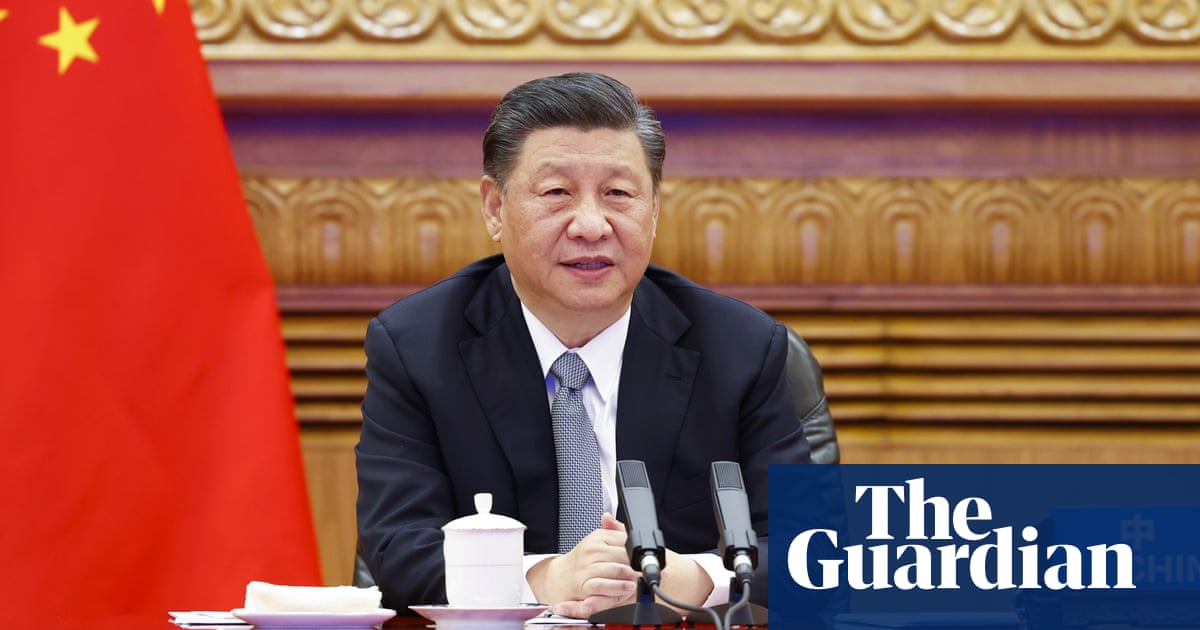
China will continue to push forward on the climate crisis, Xi Jinping has said while appearing to criticise the “protectionism” of Donald Trump’s tariff policies.
The Chinese president was attending a closed-door virtual meeting with the UN secretary general, António Guterres, Brazil’s president, Luiz Inácio Lula da Silva, the European Commission president, Ursula von der Leyen, and about a dozen other heads of state and government to discuss the climate crisis.
Xi told the meeting that China would “not slow down its climate actions”, according a draft of his remarks. He did not name the US or Trump but made apparent reference to them while noting that China had “built the world’s largest and fastest-growing renewable energy systems as well as the largest and most complete new energy industrial chain”.
Xi said: “Although some major country’s persistent pursuit of unilateralism and protectionism has seriously impacted international rules and the international order … as long as we enhance confidence, solidarity and cooperation, we will overcome the headwinds and steadily move forward global climate governance and all progressive endeavours of the world.”
After the meeting, Guterres said no government or fossil fuel interest could hold the world back from pursuing a clean energy future.
“The world is moving forward, full speed ahead,” Guterres said. “No group or government can stop the clean energy revolution. Science is on our side, and the economics have shifted.”
Guterres did not mention Trump directly but the actions of the US president clearly overshadowed the meeting. The Guardian understands that the US administration was not invited to the online summit.
China’s presence was key. It is unusual for Xi to take part in such meetings but China appears to be attempting to position itself on the world stage as a stable and predictable superpower, a leader to developing countries, an economic partner and a counterweight to the unpredictability of Trump.
The global trade war launched by the US president is hitting the US economy hard, with stock markets plummeting and bond investors seeking other havens for their money.
China has responded by putting controls on some of the minerals and other materials that are critical for clean energy technology such as electric vehicles, solar panels, wind turbines and batteries.
China is snubbing a separate summit to be held on Thursday and Friday in London, hosted by the UK government and the International Energy Agency, to discuss the future of energy security. The US will be represented at the London meeting by Tommy Joyce, the acting assistant secretary for the office of international affairs at the US Department of Energy.
after newsletter promotion
The White House was forced to deny this week that there were plans for new restrictions on the activities of nonprofit organisations that advocate for action on the climate crisis, after widespread rumours of a fresh executive order in the offing.
Guterres told journalists on Wednesday that China, Brazil, the EU and the other countries and blocs present – including the heads of government of the countries currently chairing the African Union, the Asean group of Asian and Pacific countries, and the Alliance of Small Island States – had expressed “a unifying message” of support for climate action.
He said: “Our world faces massive headwinds and a multitude of crises. But we cannot allow climate commitments to be blown off course.”
At the high-level UN meeting on Wednesday, countries affirmed the collective agreement to put forward their national plans on greenhouse gas emissions by September, before the next UN climate summit, Cop30, which will take place in Brazil in November.
Guterres also urged countries to provide more climate finance to poor and vulnerable nations and set a roadmap for how to deliver the $1.3tn (£980bn) a year promised to the poor world by 2035 at last year’s Cop29.


